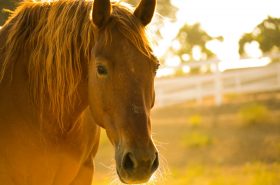If you have a performance horse, then wear and tear on the joints is going to occur at some point in time. Of course, some disciplines are harder on the joints than others, especially those where the horse is stopping and turning quickly or jumping.
Many horses can benefit from a joint support supplement, and preventative care is often beneficial, too. But which supplement is best for your horse? This information might help you decide.
Glucosamine and Chondroitin
Glucosamine is probably the most well-known and most proven joint supplement ingredient. A type of sugar (glucose) molecule naturally occurring in joint cartilage, glucosamine has a high absorption rate and protects against bone destruction. Studies show that glucosamine can slow the rate of wear on existing cartilage and even help repair damaged cartilage. There are two forms of glucosamine: sulfate and hydrochloride, and both have proven effective.
Chondroitin is another component of cartilage (as well as bone and some connective tissues) that is commonly used in joint supplements. Glucosamine and chondroitin are often combined in products, and they seem to work best when used together.
Hyaluronic Acid
Like glucosamine and chondroitin, Hyaluronic Acid (HA) is a natural component of cartilage and joint fluid, and if your horse has acute joint inflammation, it may be the best way to go. With HA, the higher molecular-weight products (often more expensive) work better than the lower molecular-weight products.
MSM
Methylsulfonylmethane, a derivative of DMSO, is another naturally occurring compound that has proven to be beneficial for joints. MSM is a great source of dietary sulfur, a mineral involved in the maintenance of collagen, cartilage, hooves, and hair, as well as joint fluid and many important enzymes. MSM also has significant anti-inflammatory and pain-killing effects for horses in hard work.
Turmeric/Curcumin
This herb is well known for its use as an anti-inflammatory, and it works by significantly reducing the inflammatory pathways in the body. The good news is that unlike bute and most other non-steroidal anti-inflammatories often given to horses, turmeric works as a COX-2 inhibitor (as opposed to COX-1) and does not damage the lining of the stomach. Studies provide evidence that curcumin, the main active ingredient in turmeric, may offer relief to horses with osteoarthritis or other inflammatory conditions.
**
Casie Bazay is a freelance and young adult writer, as well as an owner/barefoot trimmer and certified equine acupressure practitioner. She hosts the blog, The Naturally Healthy Horse, where she regularly shares information on barefoot, equine nutrition, and holistic horse health. Once an avid barrel racer, Casie now enjoys just giving back to the horses who have given her so much. Follow Casie at www.casiebazay.com.



